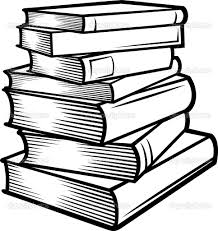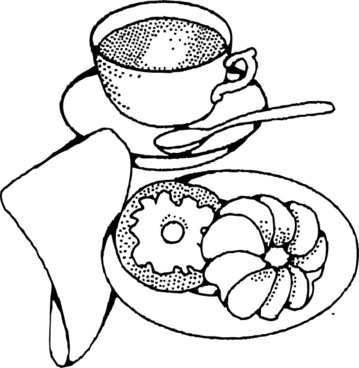Fran Rizer was one of the original SleuthSayers, going all the way back to our origin in 2011. She went on sabbatical from our little asylum a few years ago, making occasional guest appearances since then, and she passed away last Christmas. I think this is the first time we have mentioned that event here, so I apologize for our tardiness.
Fran was a proud South Carolinian. She took up the pen after twenty-five years of teaching. She is best known for her Callie Parrish mystery series, about a "mortuary cosmetologist." She was a winner of the Porter Fleming Fiction Award, and a nominee for the Agatha. Fran also wrote country music!
Thanks are due to Barb Goffman who was kind enough to point out that this piece was waiting in the SleuthSayers wings and we are delighted to run it. There is one more that will show up at an appropriate time.
— Robert Lopresti
SIGN HERE, PLEASE
A favorite online dictionary defines "autograph" as "a signature, especially that of a celebrity written as a memento for an admirer." Now, I am far from a celebrity even if a lady did run up to me in Target one day excitedly asking, "Are you Fran Rizer?" For a moment I was afraid she was about to serve me with legal papers of some kind. Then she said, "I read your books," which turned it into a pleasant encounter.
It hasn't worked out that way. To me, signings provide an opportunity to meet and visit with readers, not only of my books, but also others. Some folks get personal during those visits. A reader in Asheville, NC, took off her socks and shoes to show me how straight her toes are since her bunion surgery. We're now friends on FaceBook.
Several years ago, educational Core Curriculums stopped including the teaching of cursive handwriting. "It's no longer needed," they said. "Everything is done electronically these days," they said. "Use that time to teach keyboarding or other electronic skills," they said. To former elementary teachers and probably to most people my age, this was distressing. I also wondered how much time the people who made that decision had spent in the classroom.
Many teachers disagreed with those decision-makers. I acknowledge that most people write fewer checks these days. They pay for things with computers, plastic, and their telephones. A lot of communication is electronic and can be signed electronically. There are, however, times when a real signature is needed. My first thought is for a driver's license or a marriage license. Come to think of it, divorce papers require signatures, also. Anyone who has had a spouse who refused to sign those papers can testify to that.
I'm pleased to announce that many states and school districts reversed that decision in 2019. Cursive writing is again to be taught in elementary classes beginning in the 2019-2020 school year..
Authors are generally handed a book or magazine to autograph. Those in other arts have been known to sign a wider variety of items. Many stories tell of rock stars who have signed their female fans' body parts. Occasionally those fans will have the signature tattooed before it's allowed to be washed away. Athletes sign equipment like footballs. Musicians will sign instruments such as guitars, sometimes for a fan to keep, often to be auctioned.
As a child, my dad took Mom and me to many musical performances. At age ten, I had autographs from Ray Charles and Patsy Cline as well as numerous other country artists. I threw them away when I decided I was too "grown-up" to do that. I didn't realize that an autograph is a way of preserving a special moment or event, a way of gaining pleasure from owning something of a person that is admired, but it might also be worth money. Several of the ones I had would command good-sized payments from collectors.
The autograph of a famous author can be worth a lot. Value is determined by several factors including rarity, such as the few existing signatures of William Shakespeare. One of the more recent ones is Harper Lee. She did not like to sign books which makes some of hers even more valuable. In 2016, a first edition copy of To Kill a Mockingbird, with Lee's signature sold for twenty-seven thousand dollars.
A lot of modern writers almost scribble their autographs. (Perhaps they never learned cursive either.) Two that attracted my attention for their embellished style are:
As a child, my dad took Mom and me to many musical performances. At age ten, I had autographs from Ray Charles and Patsy Cline as well as numerous other country artists. I threw them away when I decided I was too "grown-up" to do that. I didn't realize that an autograph is a way of preserving a special moment or event, a way of gaining pleasure from owning something of a person that is admired, but it might also be worth money. Several of the ones I had would command good-sized payments from collectors.
 |
| Harper Lee's signature on a first edition of To Kill a Mockingbird is probably worth even more now. |
A lot of modern writers almost scribble their autographs. (Perhaps they never learned cursive either.) Two that attracted my attention for their embellished style are:
and
Note that Fitzgerald signed his "Sincerely." Charles Schultz generally added a little cartoon sketch beside his autograph. Most of my readers want their names personalized with the signature though I keep telling them that if I'm ever in the news for any reason, signature alone is more valuable. I tend to write something like, "Reader's name, Welcome to Callie's world, Fran Rizer." My stand-alones are usually signed with "Reader's name, Enjoy! Fran Rizer."
I've never had the nerve (or the inclination really) to follow what Tamar Myers (author of the Belgian Congo and the Den of Antiquity series as well as Penn-Dutch Magdalena series) advised me: "If they buy a paperback, sign it with "Best wishes;" if they buy a hardback, sign it, "Your friend"; if they buy a complete set, sign it "You were wonderful last night." In the event you don't know Tamar, she as funny in person as her character Magdalena.
How about you? Is your signature legible? What do you usually write? What's the funniest or most interesting anecdote from your signings?
Until we meet again, please take care of… YOU.






























